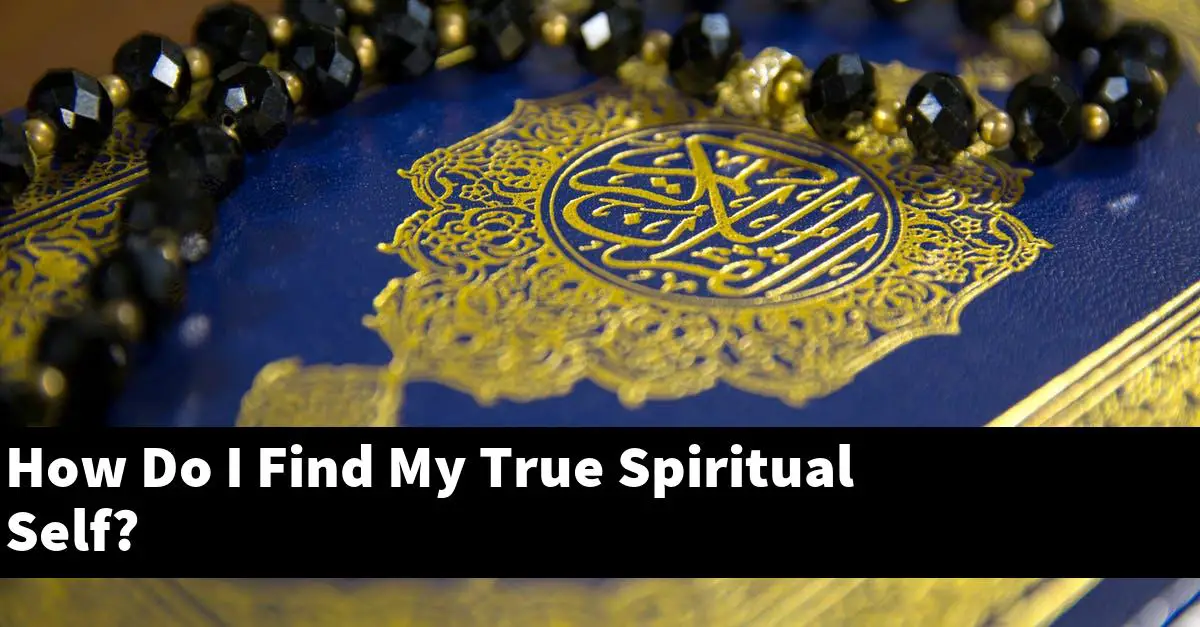The essay “How do I find my true spiritual self?” explores the idea of finding one’s spiritual identity. It discusses the importance of understanding one’s own spiritual beliefs and values, and how this can help in finding a sense of purpose and direction in life.
The essay also looks at the role of community and support in helping to find and maintain a spiritual identity.
How do you find your spiritual self?
Everyone experiences spirituality in different ways. However, one way to find your spiritual self is to explore your own beliefs and values.
What are the things that make you feel good about yourself? What are the things that make you feel connected to others and the world around you? Once you know these things, you can start to look for ways to incorporate them into your daily life. Doing this can help you find your spiritual self.
What is my spiritual path?
There is no single answer to this question, as everyone’s spiritual path is unique. However, some things to consider might include your beliefs, your goals, and your values.
If you’re not sure where you stand, it’s best to speak with a religious leader or counselor.
What is shadow work in spirituality?
Shadow work is a term used in spirituality to describe the process of working with shadow aspects of oneself. This can refer to aspects of oneself that are negative, shameful, or destructive.
It can also refer to aspects of oneself that are positive, creative, and healing. Shadow work can be done on a personal level, as well as a group level.
Shadow work can be helpful in exploring and resolving negative emotions and patterns. It can also help increase self-awareness and compassion.
Shadow work can be used to connect with the spiritual aspects of oneself, as well as with other people and beings. It can be an important part of spiritual growth and healing.
How do I find my spiritual truth?
everyone experiences their own path to spiritual truth. However, some principles that can help you find your spiritual truth include:
1. studying your religious and spiritual texts to gain a better understanding of your own beliefs and how they fit into the larger spiritual world.
2. engaging in contemplative practices, such as prayer, meditation, or contemplation of nature, to explore your own innermost thoughts and feelings.
3. relying on your intuition and inner guidance to help you discover your spiritual truth.
4. seeking out other like-minded individuals who can support and encourage your exploration of spiritual truth.
What is your true self in spirituality?
The concept of the self in spirituality can be difficult to define. Generally, the self in spirituality refers to the individual’s deepest, most authentic self.
This self is not solely defined by the individual’s physical or mental attributes, but includes all of the aspects of who they are – their emotions, thoughts, and spiritual beliefs.
When exploring the self in spirituality, it is important to remember that the self is constantly evolving. What was once important to us may no longer be as relevant after we’ve experienced different things and learned more about who we are.
This is why it is important to keep an open mind and explore spirituality in a way that feels comfortable for you.
Ultimately, the self in spirituality is a representation of who we are on a spiritual level. It is our connection to the Divine, and it is from this connection that we can find strength, peace, and happiness.
Is your subconscious your true self?
it depends on a person’s individual definition of ” subconscious ” and ” self “. Generally, though, most people would agree that the subconscious is an area of the brain that is not currently being used and is, in some sense, “hidden”. Some people believe that the subconscious is the source of our deepest thoughts and feelings, while others believe that the subconscious is simply a repository for our past experiences.
There is no scientific evidence that supports the idea that the subconscious is our true self, and there is a lot of debate about the concept. However, many people believe that the subconscious is an important part of our lives and should be explored and used as part of our personal growth.
Whether or not the subconscious is our true self is a personal question that can be explored and learned about through personal experience and research.
How do I know who my true self is?
There is no single answer to this question as it depends on personal circumstances and preferences. However, in general, the process of self-discovery might involve examining one’s values, beliefs, and behaviors in order to identify what is important to you and what you stand for.
You might also want to reflect on your experiences and probe deeper into why things have worked out the way they have in your life. Ultimately, you want to come to a clear understanding of who you are and what you want out of life.
Conclusion
Everyone’s spirituality is unique to them. However, there are some ways that you can explore your spirituality and connect with your true self.
This can be done through meditation, prayer, journaling, and spending time in nature. You may also want to read spiritual texts or speak with a spiritual leader to help guide you on your journey.
The most important thing is to be open to the process and allow yourself to go at your own pace.


